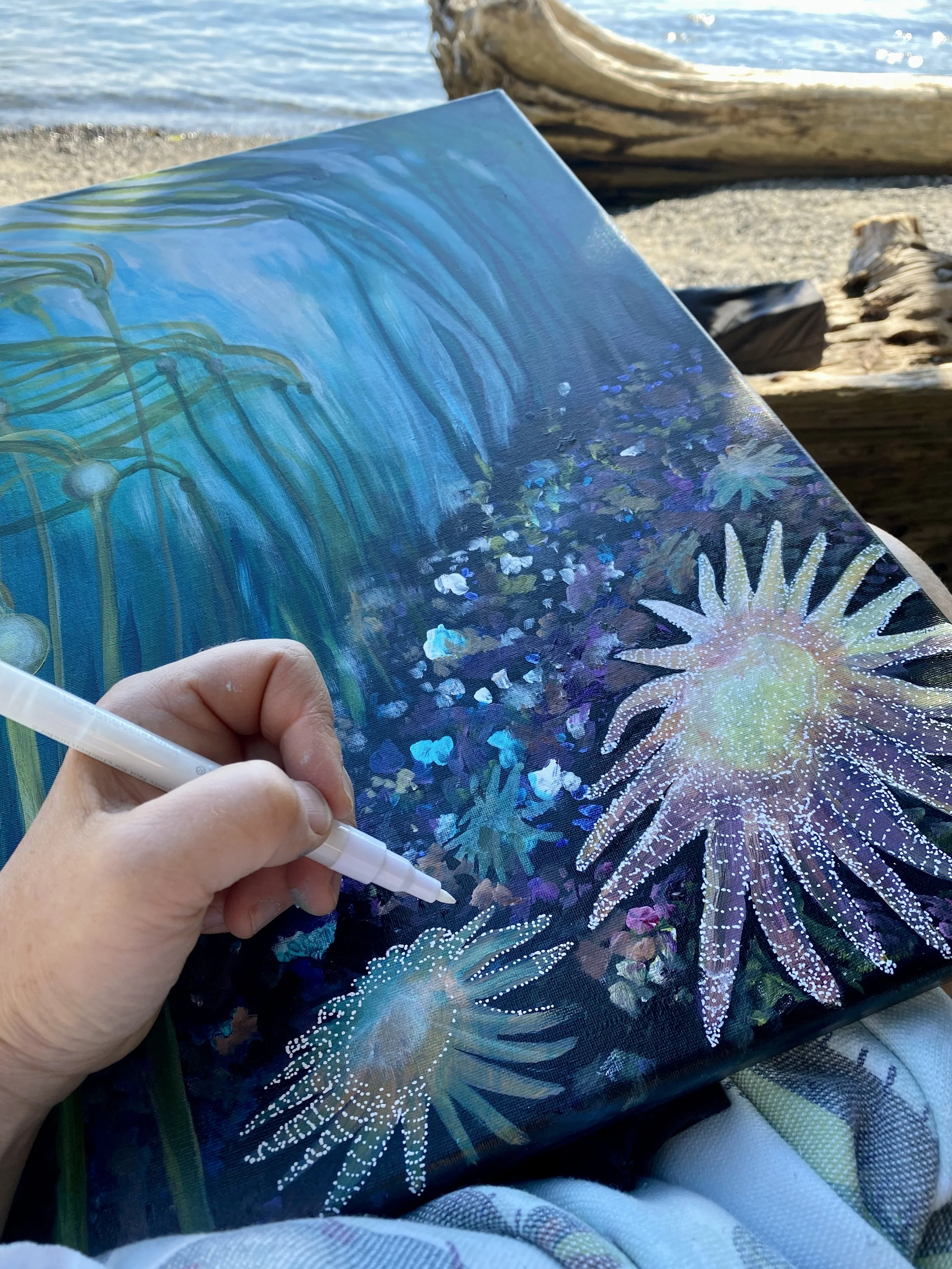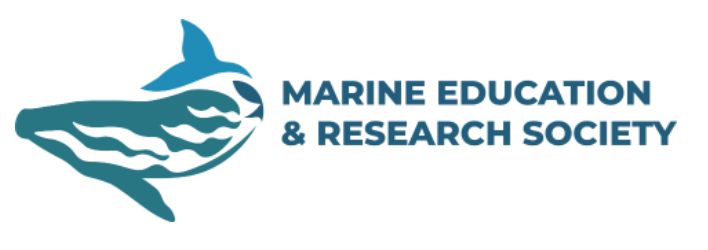The Kelp Forest Series
Thank you collectors! With your support, the 2022 Kelp Forest series raised $2400 USD for marine research and education. This series is now closed, and the few remaining pieces have been moved to the Functional Art and Original Landscapes galleries.
This series was inspired by the kelp forest and the species that depend on it, created over a number of different art media.
The underwater landscapes are inspired by the photography of diver and marine biologist Jackie Hildering. The series will highlight two endangered species in BC’s cold oceans; the Sunflower Star and the Southern Resident Killer Whale population.
20% of sales from this series will benefit the Marine Education and Research Society. You can visit their website to learn about their mission to educate, celebrate and preserve biodiversity in this special place, or read more about them below.
The Kelp Forest series is dedicated to my wonderful niece, Keltie.
Learn More about MERS
The Marine Education and Research Society (MERS) is based in Port McNeill, Northern Vancouver Island in the Territory of the Kwakwak’wakw. This is a small organization doing big work; applying their research efforts directly into education and conservation.
Their work began when the number of Humpback Whales off the coast of British Columbia began to increase. Sightings of Humpbacks used to be very rare because so many were killed by whaling. The last whaling station in British Columbia closed in 1967. The MERS team documents who the Humpback Whales are in order to understand habitat use, life histories, feeding strategies, how to reduce threats, and to help people care about the whales as individuals. They are the coordinators of the Canadian Pacific Humpback Collaboration to maintain a province-wide catalogue of Humpback Whales.
MERS anticipated that the increased overlap between Humpback Whales and human activity would lead to increased risk of entanglement in fishing gear and collision with boats. The team has put great effort has gone into researching these threats, inputting into government policy, educating boaters, and providing Marine Mammal Naturalist Courses and workshops for First Nations and Fisheries Officers. They also have a role in whale disentanglement as directed by Fisheries and Oceans Canada.
They are also very directed at raising awareness of the biodiversity off the coast of British Columbia, the plight of species that are often hidden in the dark, plankton-rich waters and why it is important. This includes Sunflower Stars, the world’s largest species of sea star at up to 1 metre across. These giant sea stars were very heavily impacted by Sea Star Wasting Disease which began in 2013. Their loss from the ecosystem impacts the health of kelp forests because Sunflower Stars eat Green Urchins which graze on kelp. The kelp forests are essential as habitat and food, and for oxygen production and carbon dioxide buffering. To date, there isn’t scientific consensus about which bacteria or virus is causing the disease. What is consistent is that changing environmental conditions appear to allow the pathogen (be it bacteria or viruses) to have a greater impact.
20% of sales from Kathryn’s Kelp Forest series will donated to MERS for the month of September. You can also make a direct donation to MERS here to aid their conservation efforts. Watch for their annual fundraiser auction too!



